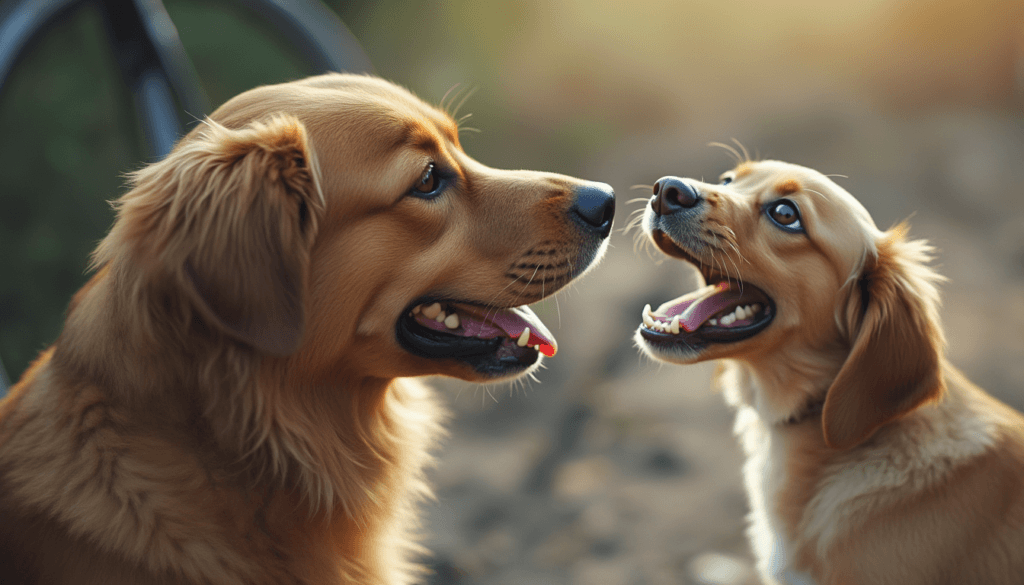
Taking a closer look at these breeds, you’ll find each has its own set of traits that make them unique. Labradors are incredibly versatile, making them great for families or as service dogs due to their gentle nature. German Shepherds are often seen in roles that require alertness and quick learning, like in police or search operations. Golden Retrievers, with their gorgeous coats and friendly demeanor, fall somewhere in between, eager to please and great with kids.
Thinking about adding a large dog to your household? You’ll want to consider how much space you have and your routine. Large breeds typically need ample exercise to burn off all that energy. A big backyard or frequent trips to the park could do the trick. All those play sessions aren’t just fun; they’re a must for keeping your dog happy and healthy.
Training these dogs is also a bit of a journey. Large breeds benefit from consistent training right from puppyhood. Basic commands, socialization, and regular vet check-ups play big roles in their upbringing. And while they’re known for being fairly healthy, it’s worth knowing about breed-specific health concerns. Regular vet visits are crucial to catching any potential issues early.
Beloved Medium-Sized Breeds: Versatility and Appeal
Medium-sized dogs offer the best of both worlds, blending the charm of small dogs with the robustness of larger breeds. Bulldogs, Beagles, and Cocker Spaniels lead the pack in this category. Bulldogs bring an unmatched chill vibe, Beagles exude a contagious zest for life, while Cocker Spaniels charm with their sweet nature and flowing locks.
If you’re wondering about adaptability, medium-sized breeds can be surprisingly flexible. They’re not just for wide-open spaces and sprawling backyards. Many find comfort in urban settings or smaller homes, provided they get their fair share of walks and playtime.
Keeping these pooches in prime condition involves a bit of diligence. Bulldogs, for instance, need some help keeping cool in warmer climates because of their adorable squishy faces. Beagles might spend their lives following their noses, but they also need regular vet visits to stay in tip-top shape. Meanwhile, grooming a Cocker Spaniel’s coat takes commitment, but hey, a little pampering never hurt anyone.
Ever talk to a medium-sized dog owner? They’re likely to sing praises and share anecdotes filled with laughter and joy. Owning one of these breeds is like being part of a club where everyone’s got special tales, whether it’s a Bulldog’s stubborn antics or a Beagle’s escapades.
While each medium-sized breed comes with its quirks, their universal appeal lies in being great all-rounders. They fit nicely into different lifestyles and bring heaps of personality everywhere they go. Whether you’re into lazy Sundays on the couch or hiking adventures, there’s probably a medium-sized buddy who’s just right for you.
Small and Toy Breeds: Perfect Companions for Urban Life
Small and toy breeds have stolen the spotlight, particularly for city dwellers craving a compact companion. Think French Bulldogs, Poodles, and Chihuahuas — tiny in size but big on character. French Bulldogs boast a charming personality with their signature bat ears, while Poodles bring sophistication and intelligence to the table. Chihuahuas, despite their petite stature, are bold and brimming with attitude.
Living in an apartment doesn’t mean skipping out on a pet if you’re eyeing a small breed. These pups are right at home in limited spaces, although they still appreciate playtime and short strolls. Their size makes them easy travel buddies or lap warmers during movie marathons.
Caring for these breeds involves knowing their quirks. French Bulldogs, for instance, need a watchful eye on their weight and breathing. Poodles require a grooming routine to keep those curls looking their best. As for Chihuahuas, they might need a little encouragement to handle colder weather with their delicate build.
Social media plays a role in propelling small breeds into the limelight. From dynamic Instagram posts to viral TikToks, these dogs are naturals in front of the camera. It’s not all about the likes, though — their endearing qualities make them cherished by anyone lucky enough to share their home.
If you’re considering a small or toy breed, take stock of your living space, lifestyle, and how much time you can dedicate to their care and companionship. With the right attention and affection, these little dogs can make a big difference in any urban environment.
Choosing the Right Dog Breed: Considerations for Prospective Owners
Thinking about adding a four-legged friend to your family? It’s a big decision that requires some homework. Not every breed will fit every lifestyle, and finding the perfect match depends on a few key factors.
Size matters more than you’d think! A bigger dog usually means more energy and space requirements, while small breeds might fit better in cozier homes or for those who travel often. Think about how much room you have before committing.
Energy levels can vary drastically between breeds. If you’re someone who loves long walks or keeping active, a high-energy breed like a Beagle or Labrador might be right up your alley. Prefer lazy afternoons and couch cuddles? Consider a Bulldog or Frenchie.
Don’t overlook health and grooming needs. Some breeds come with known health issues or grooming demands that could require more frequent vet visits or trips to the groomer. It’s worth researching these aspects to avoid surprises down the road.
When it comes to picking out a new furry family member, reputable sources are key. Trusted breeders can provide insights into the dog’s lineage and health history, while shelters are great places to find loving companions of all sizes, often already house-trained and socialized.
Of course, getting a dog is about more than tickling boxes; it’s about finding a companion whose personality and needs jive with your own quirks and lifestyle. Talk to other pet owners, maybe even volunteer at a shelter, to get a feel for what kind of dog might be your perfect match.